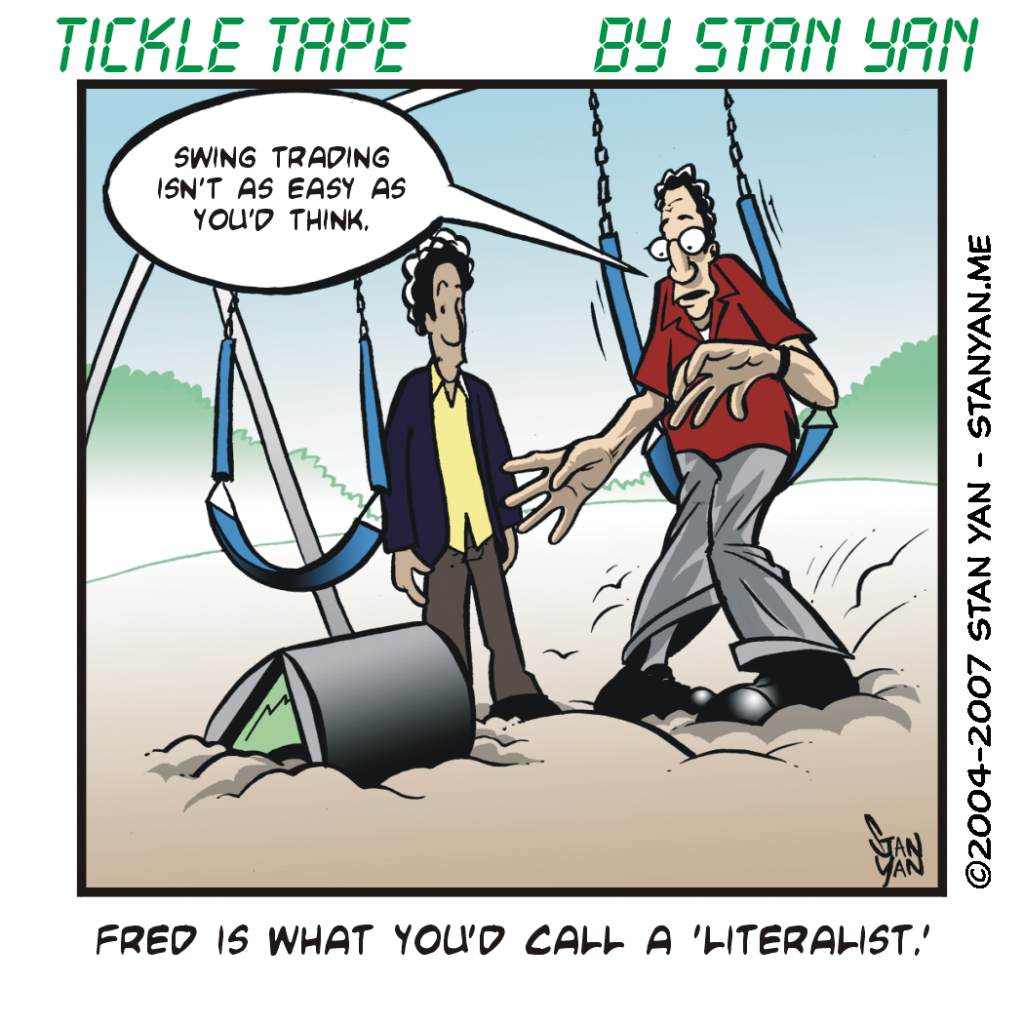A fundamental truth of trading is that one must take full and complete responsibility for both failures and successes. It’s easy to take credit for a winning trade, but a losing trade? Our first instinct is to find an excuse: “The market conditions changed too quickly. The market makers are manipulating the price again. I shouldn’t have taken the advice offered by that uninformed analyst.” It’s easy to find excuses for losing trades, but in the end, a winning trader takes full responsibility for all aspects of a trade, what went right and what went wrong.
Taking full responsibility is crucial. Traders who don’t take full responsibility will devote the bulk of their psychological energy to defending themselves against their mistakes. Rather than cultivating a pristine view of the markets, they will tend to hold a view distorted by their burning desire to avoid blame. In addition, while one is finding an excuse for an adverse event, no time and energy are devoted to anticipating adverse events and thinking of preventative strategies to neutralize them. Unfortunately, for many traders, it’s difficult to take full and complete responsibility.
Why is it so hard to take full responsibility? A variety of psychological explanations exist, and they differ depending on the person and his or her psychological history. Everyone tends to avoid responsibility to some extent. There’s a very human tendency to build up our egos and feel good about ourselves.
In explaining the outcomes of our lives, we often attribute success to our skill, intelligence, and talent, and attribute failure to external circumstances, over which we had no control. This general tendency usually helps us cope with most of the adverse events we encounter in our everyday lives, but this tendency is self-serving and impedes one from taking preventative measures to anticipate potential adverse events.
For some people, making excuses and avoiding responsibility is rooted in early childhood. Some people grew up with parents who spent all their effort pointing out and severely punishing every single mistake their children made. As children, they learned that to avoid punishment, they had to make an excuse and place the blame for the mistake on anyone but themselves.
The consequences of making even the most minor mistake were so dreadful that they felt a strong need to avoid responsibility at all costs. Perhaps most people experienced this type of parent-child transaction to some extent, but at an extreme, it can incapacitate. One becomes afraid to act out of a fear of failure. And when a trader fears failure, he or she will be unable to try out new trading ideas or will be afraid to accept full responsibility for the trade.
Taking full responsibility for losses is difficult. One has to be confident enough to realize that just because one makes a mistake, or misses a potential adverse event, it does not mean that one is inadequate or incompetent. It merely reflects the way things work. No one is perfect, and mistakes are certain to happen. But avoiding responsibility is even a bigger mistake.
Placing the blame on someone else or external events makes one less cautious. All psychological energy is focused on defending oneself, but all energy should be spent calmly identifying potential adverse events and finding creative solutions to counteract them. Taking full responsibility ensures that these preventative steps are taken.


